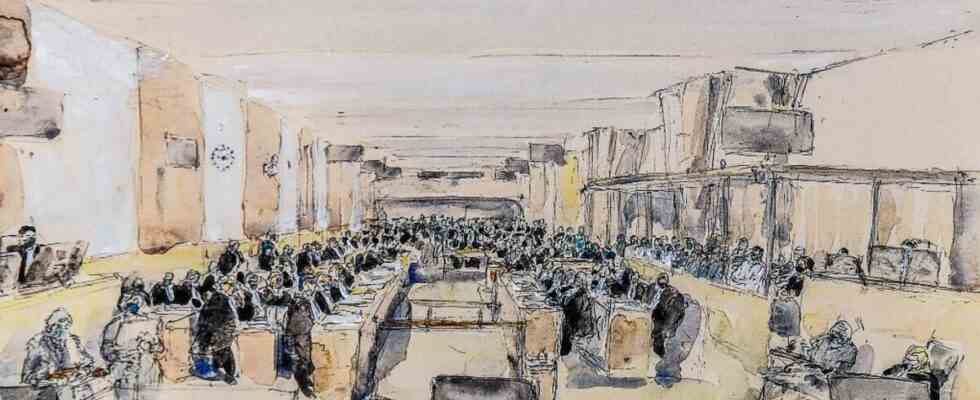“We are very much looking forward to next week. Don’t change your state of mind…” The hearing last Tuesday of Mohamed Abrini had barely ended when the president of the specially composed assize court, Jean-Louis Périès, could not help but project into the future. A few minutes earlier, the Brussels resident confided, to everyone’s surprise, that he “was scheduled for November 13”, he who had always said that he had only accompanied his friends. But he will not say more, the hearing of the day not being devoted to the place of the attacks. “I’ll talk about that next week,” he promises, however. This Tuesday, then. On the 101st day of the trial, and throughout the week, the defendants will indeed be questioned for the first time about the course of this nightmarish night.
Until now, the court had endeavored to retrace chronologically the entire period preceding the attacks, from their planning, with the trips to Syria of various defendants, to their preparation – repatriation of the commandos, purchase of equipment, rental of hideouts… –, through relationships with each other. Place now in the scenario of this evening. Because, despite five years of investigation, thousands of expert reports, dozens of hearings, many questions remain unanswered. How were the different commandos organized? What about this attack in the 18th arrondissement, claimed by the Islamic State, but not perpetrated? What was the exact role of Salah Abdeslam, whose interrogation is scheduled over two days, Wednesday and Thursday?
The role of Abdeslam at the heart of the questions
Since the start of the trial, the last surviving member of the November 13 commandos has come out of the silence in which he had locked himself during the investigation, but chooses precisely the elements he wishes to bring to court. Thus, if he admits having escorted some of the terrorists, he affirms that he knew nothing of the deadly project which brought them back to Europe, or even of their status as combatants when they were in Syria. If he defined himself, on the first day of the trial, as an “Islamic State fighter” – “we targeted the population, civilians”, he bluntly admitted a few days later – he has, on several occasions, tried to portray himself as a repentant.
“When you’re in prison, in solitary confinement 24 hours a day, you really say to yourself, ‘Did I do the right thing to back down or should I have gone all the way? ?” We say to ourselves: “I should have started this thing!” “, he said in February, thus suggesting that he gave up activating his explosive belt. A point on which the prosecution is very circumspect, several expert opinions having brought to light that the belt was defective. This is the ambivalence of his line of defence: not to disavow those whom he considers to be his brothers in arms, while only acknowledging the facts for which there are material elements. To the most embarrassing questions – including when they are asked by his own lawyers – he opposes an end of inadmissibility. “The truth will be established on the day of the resurrection,” he says after a question from his counsel, Me Olivia Ronen. “It can take a long time. And we have a deadline of June 24, ”regrets the latter.
Right to silence
What will also happen to the positioning of the other defendants? Osama Krayem, Sofien Ayari and Mohamed Bakkali have repeatedly asserted their right to silence. “At no time is this a lack of respect for the court,” said the latter, believing only that his answers could not satisfy the court or the civil parties. But anyone who is used to courtrooms knows that the script is never written in advance and that the positioning of one day is not necessarily that of the next day.

